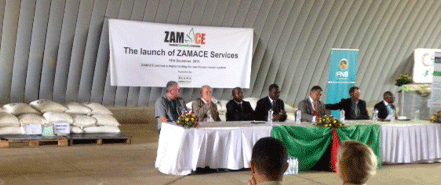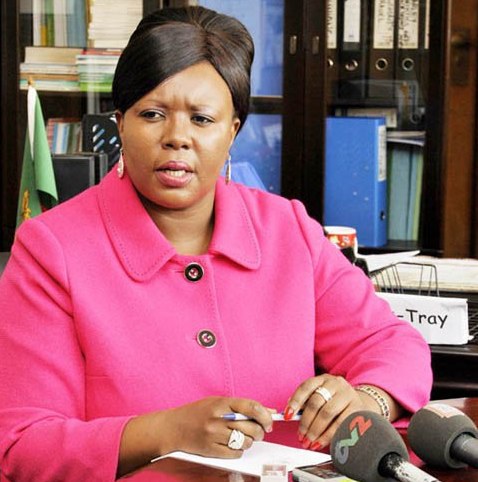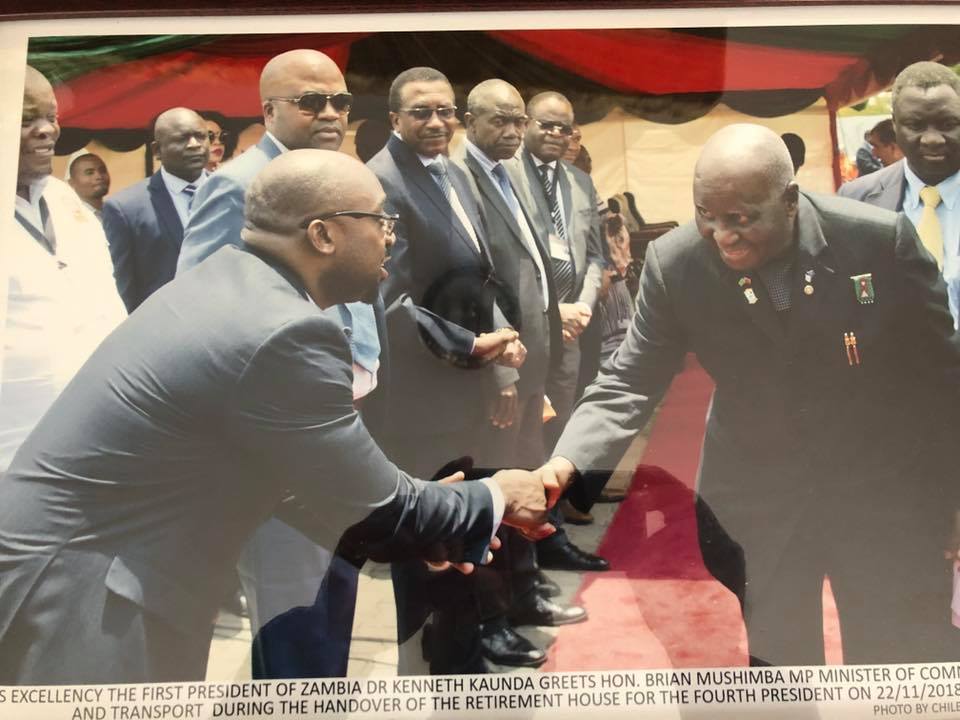Grain dealers secure viable food commodity supplies from Southern Africa region
Notice: Undefined index: catFilterList in /home/zambi/public_html/wp-content/plugins/wp-likes/api.php on line 243

Given Lubinda, Zambia’s Minister of Agriculture, commissioned the launch of services by the Zambian Agricultural Commodities Exchange ZAMACE 18 Dec 2015
By Jacinta Mwau
[Lusaka, Zambia, 28 June 2017]. Today, the Eastern Africa Grain Council (EAGC) in collaboration with Zambia Commodity Exchange (ZAMACE), with support of USAID’s East Africa Trade and Investment Hub and USAID’s Southern Africa Trade and Investment Hub held a Regional Trade Facilitation Forum in Lusaka, Zambia. The forum brought together over 195 sellers and buyers of maize and other grain commodities from the Eastern and Southern Africa nations who signed trade deals in terms of contracts amounting to 382,640MT valued at USD100 Million for export of grain commodities.
The objective of the Trade Forum was to strengthen food trade linkages between southern Africa countries, namely Zambia, Malawi, South Africa, and Zimbabwe, and eastern Africa counties, namely Kenya, Uganda, Rwanda and Burundi.
Presently, the Eastern Africa region is experiencing a shortage in availability of food grains, including maize, soybeans and other grains. Southern Africa on the other hand is currently facing a more positive outlook for food production. Production prospects in 2017 for key food staples in Zambia, particularly maize, are quite favourable and are expected to record sufficient tradeable surplus this year of 3.2 million MT. This shows the need to promote intra-African trade in agricultural commodities and be accountable to the Malabo declaration, which clearly articulates the need to promote agricultural productivity and intra-regional trade. COMESA has continued to support the elimination of barriers to regional trade and allowing movement of commodities without borders particularly through the COMESA Regional CAADP Compact.
“As a Government we declare that we will no longer have any export bans, and we announce the removal of 10% export tax on all grain commodities. We ensure the simplification of export documents and also commit to work with all Governments in the region to support regional trade and to reduce on the rules on the certificate of origin” Said Hon. Felix Mutati, Minister of Finance, Zambia. He added that “My Ministry commits to work with industry to remove the logistical challenges faced by Zambian Exporters” Said Hon. Felix Mutati, Minister of Finance, Zambia.
“The Zambian Commodity Exchange (ZAMACE) committed to provide warehouse certification services and the issuance of negotiable warehouse receipts to the stakeholders. The Commodity exchange also committed to support the buyers and sellers through the provision of a trade platform, which includes buying, and selling of commodities, ensuring compliance to industry acceptable Grades and Standards as well as coordinating the Zambian Commodities Futures Contract and providing market information” Said Jacob Mwale, Executive Director, ZAMACE

MINISTER of Finance Felix Chipota Mutati middle and ZAMACE Executive Director Jacob Mwale 990×766
“We are pleased that today’s Regional Grain Trade Facilitation B2B event resulted in significant regional trade in staple foods by linking Zambian surplus staples with buyers from East Africa to improve the food security outlook in the EAC region. Thanks to the hard work of EAGC and ZAMACE, our regional partners, 1.3 Million families in the EAC region will have access to affordable staple foods as a result of the over 380,000MT grains traded today.” Said Mr. Yohaness Assefa, Director in charge of Agriculture and Agribusiness with the East Africa Trade and Investment Hub project.
“The Council shall continue to engage the Government to create mutually agreed mechanisms to facilitate trade between Zambia and eastern and southern Africa countries for the successful execution of trade agreements and optimal benefits of contracting parties,” Said Mr. Gerald Masila, the EAGC Executive Director. Mr. Masila called upon polic

Zambia’s Finance Minister Felix Chipota Mutati with grain traders
y makers and private sector actors to work together to reduce barriers to grain trade for the realization of economic growth and increased productivity. A clear understanding between agribusinesses and policymakers on cross-border trade procedures and constraints experienced in cross-border food trade was established. Forum Partners
About Eastern Africa Grain Council (EAGC)
The Eastern Africa Grain Council is a regional organization with membership drawn from across the Eastern and Southern Africa. Membership is drawn from grain value chain stakeholders currently with presence in 10 countries across Africa including Burundi, Kenya, Uganda, Rwanda, Tanzania, Zambia, Malawi, South Sudan, DRC Congo and Ethiopia.
EAGC’s key products and services include promotion of structured trading system (STS) through the warehouse receipting systems (WRS), and Regional Grain Trading platform (G-Soko), Market Information Systems (MIS) offered through the Regional Agricultural Trade Intelligence Network (RATIN- (www.ratin.net) and evidence-based Policy Advocacy and Training and Capacity Building through the Eastern Africa Grain Institute (EAGI).
About the USAID East Africa Trade and Investment Hub (the Hub)
The USAID East Africa Trade and Investment Hub works to boost trade and investment with and within East Africa. The goal of the Hub is to deepen regional integration, increase the compe

Patriotic Front (PF) Petauke Member of Parliament(MP) and Agriculture Minister Dora Siliya being sworn by President Edgar Chagwa Lungu ay State House in Lusaka, Zambia.
titiveness of select regional agriculture value chains, promote two-way trade with the U.S. under the African Growth and Opportunity Act and facilitate investment and technology that drives trade growth intraregional and to global markets.
About the USAID Southern Africa Trade and Investment Hub (SATIH)
The USAID Southern Africa Trade and Investment Hub works to enhance economic growth and food security in Southern Africa through trade. The goal of USAID’s Southern Africa Trade and Investment Hub is to increase international competitiveness, intra-regional trade, and food security in Southern Africa.
About the Zambia Commodity Exchange (ZAMACE)

Agriculture Minister Dora Siliya heads campaign trial for AU jobs for Austin Sichinga and Albert Muchanga
ZAMACE is a private limited liability company incorporated under the Companies Act in 2007 and operates Zambia’s sole commodities exchange. It was established by stakeholders in the agricultural sector seeking a structured market mechanism that addressed the multiple market imperfections that stifle growth in the agricultural sector such as high transaction costs, low and asymmetric levels of market information, low levels of trust and ‘adversarial’ trading relations. ZAMACE is the Authorized Agency for implementation of the warehouse receipt system under Agricultural Credits Act 35 of 2010 Mission: To provide an efficient and vibrant agricultural commodity exchange, supported by a warehouse certification and receipt system to enhance market access, liquidity and credibility in the commodities market. For more information please contact the EAGC Secretariat: Regional Manager, MIS & Communications Jacinta Mwau Tel: +254 726 670822 Email: jmwau@eagc.org























